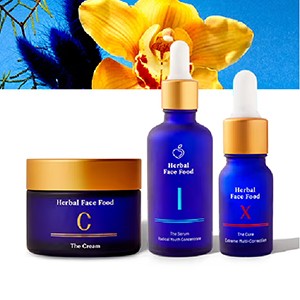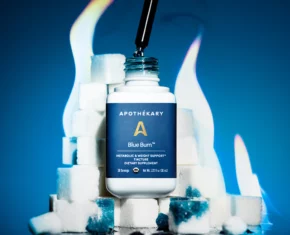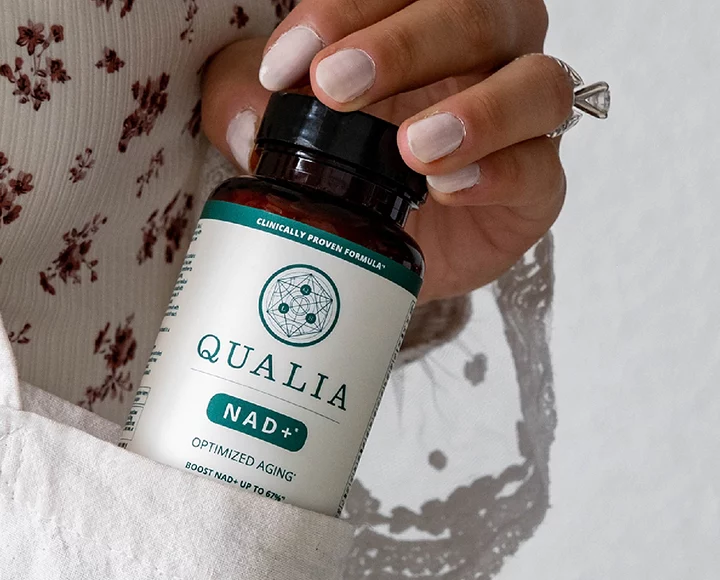News flash: there is no universal standard for “a healthy diet”. Every body is different. Even among the Blue Zones (places on earth where people live healthily the longest) there are discrepancies in diet. That said, there are many foundational principles of nutrition that serve most of us…is veganism one of them?
From day one, we’ve been a wellness site that serves up a variety of views. We may share a vegan, gluten-free recipe the same day as a profile on a grass-fed cow farmer. We believe there is room for everyone and value in exploring the variety of philosophies on optimal health.
As one of the most prominent and prolific ‘bio-hackers’ out there, best-selling author and founder of Bulletproof, Dave Asprey is one of our continual references. Pairing the latest science with his own body as guinea pig, Dave shares his learnings through a podcast, programs, supplements and books that provide a fascinating lens through which to view wellness.
Dave’s newest book FAST THIS WAY: Burn Fat, Heal Inflammation, and Eat Like the High-Performing Human You Were Meant to Be will demystify and bring precision to the way you fast or cleanse. Grab the book, but in the meantime, hear Dave out on a larger nutrition issue: veganism. In the coming months, we’ll be interviewing a variety of figures on the topic and asking them to weigh in on veganism overall. Here’s Dave with his own experience…
Why I’m Not A Vegan.
When I tried veganism in the early 2000s, I thought it was the perfect diet.
I felt amazing at first. I had tons of energy and was mentally sharp. It occurred to me that there might be a reason many vegans are so vocal about their diet — it really seemed to work.
Here’s the problem: after a few months of veganism, all those benefits disappeared. Before long I was exhausted all the time, I had terrible brain fog, I was constantly hungry, I struggled to recover from workouts, and my day-to-day wellbeing generally suffered. About six months in I started eating meat again and kept the vegetables — and I felt like myself again almost immediately.
If you’re eating a standard American diet packed with fried food, sugar, and other processed crap, veganism is going to make you feel great, purely because of all the junk you cut out. Eating only vegetables is a lot better than having fast food every day.
However, there’s a good chance you’re going to struggle with a plant-based diet long-term.
Vegans are at high risk for vitamin B12 deficiency because B12 doesn’t occur widely in plants (only animal products)[*]. Vitamin B12 is essential for brain function and red blood cell production, and a long-term deficiency can cause anemia[*].
Vegans are often deficient in omega-3 fats, a class of healthy fats that lower inflammation and create strong brain cells[*]. Plenty of plant foods contain omega-3s, but they’re the wrong form; your body only converts and uses 3-6% of them[*], which leaves vegans at high risk of not getting enough omega-3s.
It’s hard to get enough high-quality protein on a vegan diet[*]. Your protein sources are limited and often high in carbs, and vegans are at risk for lower muscle creatine and carnosine levels, which can decrease strength and slow recovery[*]. If you’re an athlete or want to build or maintain muscle, you can get enough protein with a carefully designed vegan diet, lots of soy protein shakes, and a few different supplements — or you could just eat meat.
I agree with vegans on a few things. We both promote eating lots of leafy green vegetables, as well as paying attention to where your food comes from and how it’s made. I also believe in humane, sustainable farming, which is why I eat only organic grass-fed meat and pastured animal products.
That said, you’ll look and feel a lot better long-term if you include meat in your diet. I designed the Bulletproof Diet to include the best of both worlds: plenty of meat and high-quality fats, tons of vegetables, and minimal refined carbs, sugar, processed foods, and other junk that saps your performance and makes you weak.
What’s your take on veganism? Stay tuned for a variety of perspectives as we explore the topic this spring!












